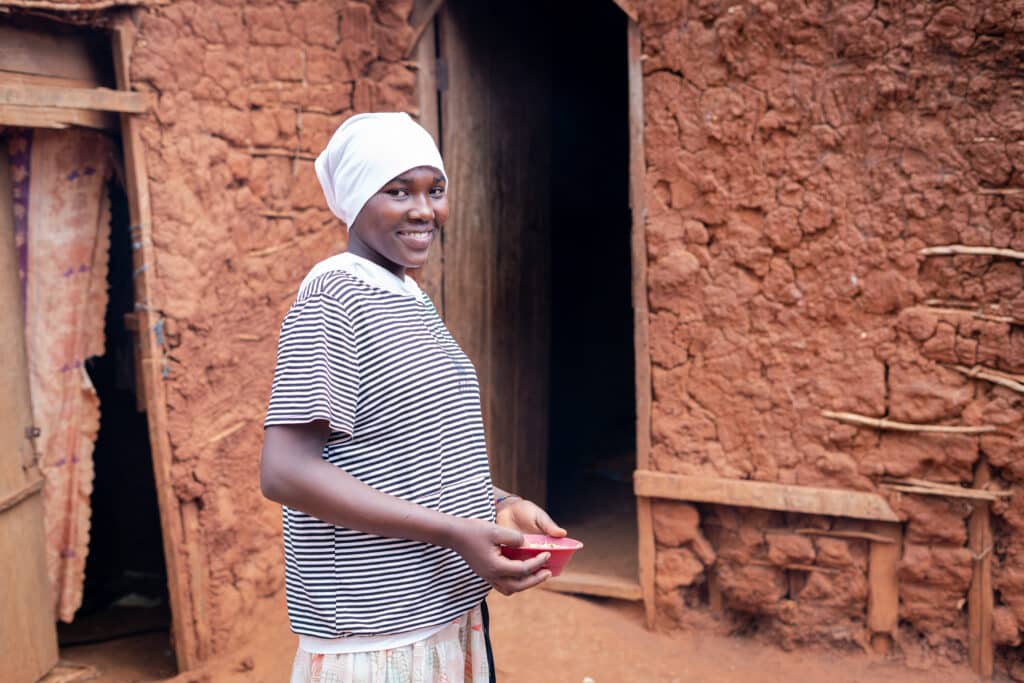‘Breaking the silence on menstruation restores women’s dignity’
In many parts of the world, menstruation is still a taboo. In Tanzania this is also very much an issue. Lilian, Country Director of Dorcas Tanzania, is deliberately speaking out on this issue because ‘breaking the silence restores the dignity of women’.
Latifa, from Tanzania, remembers very well the first time that she had her period. She woke up in the middle of the night and had a terrible stomach ache. Latifa went to the toilet and saw that she had started bleeding. She was shocked and went to see her mother. Her mother was very calm, which surprised Latifa, and said: ‘You are an adult now and that means you have to abide by new rules.’ Latifa was no longer allowed to play with boys, because if she did she would get pregnant. And when she had her period, she was not allowed to pick vegetables or go to the well to fetch water. Then there was the challenge of not leaking and staining her clothes. All this led to Latifa isolating herself when she was menstruating and not going to school. Her life became difficult and lonely.
No exception
Latifa’s story is no exception across Tanzania, according to Lilian. The MHM4Her (Menstrual Hygiene Management for Her) project is one of the projects of Dorcas Tanzania, which started in 2016 in the Manyara region. Lilian: ‘This is an area with a lot of poverty and a lack of clean water and sanitation. We offered support and found that many girls in the area were not going to school when they were menstruating. This was not only because of the stomach aches, but also because they did not have proper sanitary facilities to change and they were embarrassed if they stained their clothes. As you can imagine, the consequences for the girls were enormous. Some of them never went back to school. I immediately knew that addressing this issue would be our new challenge.’
Breaking the silence
Lilian and her team started working on a plan to support the young women to get back to school. The first step was to ensure that the schools had good sanitation facilities. They also raised awareness about hygiene and menstrual products. The male leaders were also involved in this process. Lilian: ‘At first they were angry. They were embarrassed by us. We explained to them that they should be aware of these issues because they are the ones who make the decisions. The young boys have also been taught about menstruation. Girls were often laughed at by the boys and we wanted to break the silence and we also wanted to explain to them what menstruation is really all about. We told them that it is not something bad, but that menstruation is about life.’
The Manyara project was not the end of the story. With the support of the government and a number of other organisations, similar projects have been launched in other parts of Tanzania over the past few years. Menstrual hygiene is now part of Tanzania’s school curriculum. Lilian: ‘Because we started talking about it, people’s views in Tanzania have changed. It takes time, but I believe the taboo will be broken and this will lead to more gender equality in our country.’

This article is translated from an interview that appeared in the Dutch newspaper ‘Nederlands Dagblad’ (4 May 2024). The original text is written by: Hilde Kooij-Tromp.
27 May 2024
Are you inspired?
Read the next story or contact us to get to know more about making an impact together.